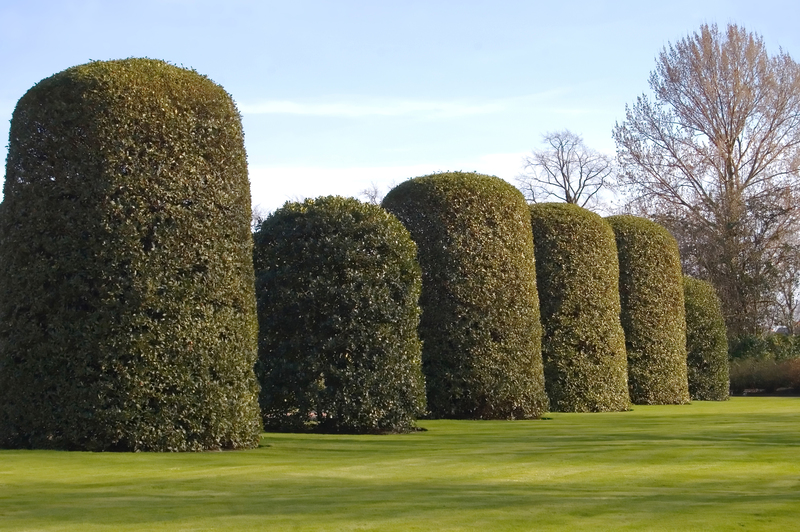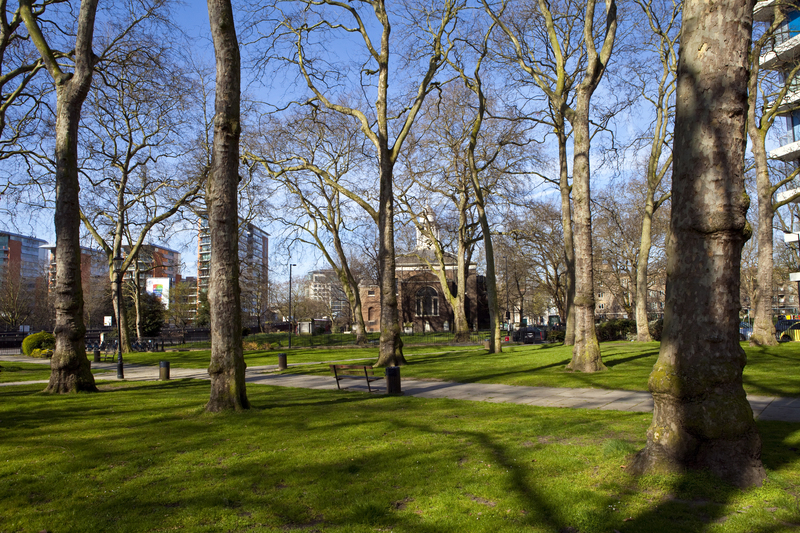Beginner's Guide to Gardening: 9 Tips to Cultivate Your Skills
Posted on 01/07/2025
Beginner's Guide to Gardening: 9 Tips to Cultivate Your Skills
Welcome to the Beginner's Guide to Gardening! Whether you're dreaming of a colorful flower bed, a thriving vegetable patch, or a window full of herbs, your gardening journey begins here. Gardening offers immense rewards -- from fresh produce and serene landscapes to the sense of achievement as your plants flourish. If you're ready to transform into a green thumb, this comprehensive guide provides nine invaluable tips to help you grow your horticultural confidence. Read on to uncover the secrets of beginner gardening success and set your garden up for lasting vitality.
Why Start Gardening?
Gardening for beginners isn't just about planting seeds and watching them grow. Creating your own garden can have remarkable benefits:
- Mental Wellness: Nurturing plants reduces stress and lifts your spirits.
- Physical Activity: Gardening keeps you moving, improving strength and stamina.
- Healthy Eating: Growing fruits and vegetables leads to fresher, tastier meals.
- Environmental Impact: Gardens foster biodiversity and support pollinators.

9 Essential Gardening Tips for Beginners
1. Start Small and Simple
Pace yourself. It can be tempting to start with a huge garden, but smaller plots are more manageable and less overwhelming for new gardeners.
- Container gardening is perfect for limited space and easy to control.
- Try a raised bed garden to minimize weeds and improve soil quality.
- Begin with a few flowerpots or a 4x4-foot plot.
2. Choose the Right Location
Assess how sunlight and shade move through your space. Most vegetables and flowering plants need at least 6 hours of direct sunlight per day.
- Observe your yard or balcony to find the brightest, most open spots.
- Consider convenience -- plants near your kitchen or patio are easier to water and harvest.
- If you're limited to shade, pick shade-tolerant species like ferns or hostas.
3. Pick Easy Plants for Starters
Certain plants are notoriously easier to grow than others. When starting your gardening journey, opt for varieties known for resilience and minimal fuss:
- Vegetables: Lettuce, radishes, carrots, and bush beans are reliable options.
- Herbs: Basil, mint, chives, and parsley thrive with little effort.
- Flowers: Marigolds, sunflowers, zinnias, and cosmos tolerate a range of conditions.
4. Prepare and Nourish the Soil
Healthy plants start with healthy soil! Before you plant, test your soil's quality. Here's how:
- Remove weeds, rocks, and debris from your chosen area.
- Add organic matter, like compost or aged manure, to improve soil texture and nutrients.
- If your soil is too sandy or heavy with clay, amend it to increase drainage and fertility.
- Consider a soil test kit for more detailed information on pH and soil needs.
5. Learn the Basics of Watering
Overwatering and underwatering are common mistakes among beginner gardeners. Find a happy medium by following these tips:
- Water early in the morning, so leaves dry off and resist disease.
- Stick your finger in the soil -- if the top inch is dry, it's time to water.
- Use mulch to retain moisture and keep roots cool.
- Avoid getting the foliage wet; aim to water at the base of each plant.
6. Master the Art of Mulching
Mulch is a true game-changer for gardening novices. Applying a layer of organic mulch (such as shredded bark, leaves, or straw) around plants brings multiple benefits:
- Suppresses weeds and reduces competition for nutrients.
- Retains essential moisture in the soil.
- Regulates soil temperature, keeping roots balanced.
7. Feed and Fertilize Your Garden Wisely
Nutrient-rich soil is the foundation of a productive beginner-friendly garden. Follow these steps:
- Start with compost or organic fertilizers designed for your plant type.
- Don't over-fertilize; too many nutrients can harm young roots.
- Follow package instructions for timing and application rates.
- Monitor plant growth for pale leaves or slow development, signs that extra feeding may be needed.
8. Regularly Monitor for Pests and Diseases
Gardens are irresistible to insects and critters, but routine checks can prevent most problems. Here's how new gardeners can protect their first garden:
- Check leaves (top and bottom) for spots, holes, or pests at least twice a week.
- Remove damaged leaves and handpick obvious pests like caterpillars.
- Encourage beneficial insects (ladybugs, lacewings) to keep harmful bugs in check.
- Water at the soil level to avoid encourages fungal issues.
9. Learn by Doing and Have Patience
Above all, gardening is a journey! Every plant is a new lesson. Here's how to stay on track:
- Keep a garden journal to note successes, mistakes, and ideas for next time.
- Join local gardening groups or online forums for advice and camaraderie.
- Don't get discouraged by setbacks; even the best gardeners face challenges.
- Celebrate milestones, like your first flower bloom or homegrown salad!
Extra Tips for Thriving as a Beginner Gardener
- Label everything! Keep track of plant varieties and planting dates.
- Invest in basic tools: a trowel, watering can, gloves, and pruners are all you need to start.
- Embrace mistakes as learning opportunities -- even failed experiments teach valuable lessons.
- Choose plants suited for your climate zone for the best chance of success.
- Try succession planting so you always have something blooming or ready to harvest.
Great Gardening Resources for First-Time Growers
The more you learn, the better gardener you'll become! Consider these additional resources:
- Visit local nurseries and chat with staff about their favorite plants for novice gardeners.
- Join a community garden to share wisdom and tools.
- Browse gardening books or reliable websites for guides specific to your interests.
Conclusion: Your Gardening Adventure Begins Now
Now that you've explored these 9 tips for beginner gardeners, you are well-equipped to embark on your own gardening adventure. Remember, great gardens don't appear overnight, but with every season you'll uncover more about nature and yourself. From prepping soil to observing a seedling's first leaves, enjoy the wonders each stage brings.
Ready to put down roots? Gather your seeds, choose your plot, and let this beginner's guide to gardening serve as your first step toward a lifetime of green-thumbed joys!
If this guide has inspired you, share your progress, questions, or garden triumphs in the comments below. Every gardener was once a beginner!

Frequently Asked Questions for Beginner Gardeners
- What's the best time of year to start a beginner garden?
Spring is generally ideal--once frost danger passes, most seeds and seedlings thrive in warming soil. - How often should I water my plants as a new gardener?
Water needs vary by plant, but aim for deep watering once or twice a week, and increase during hot, dry spells. - What should I do if my plants are not growing well?
Review sunlight, soil, and water. Sometimes moving a plant or adding compost works wonders! - Are there indoor options for gardening beginners?
Absolutely! Try herb gardens on windowsills, or start with easy houseplants like pothos or peace lilies.
Happy Gardening!
With these beginner-friendly gardening tips, your lush, rewarding outdoor space is closer than ever. Embrace the journey, enjoy the process, and watch your efforts flourish season by season.
Latest Posts
Breathing Life into Your Neglected Garden
Elevate Your Greenery with Creative Container Gardening Techniques
Vertical Gardening: A Modern Approach to Green Spaces

